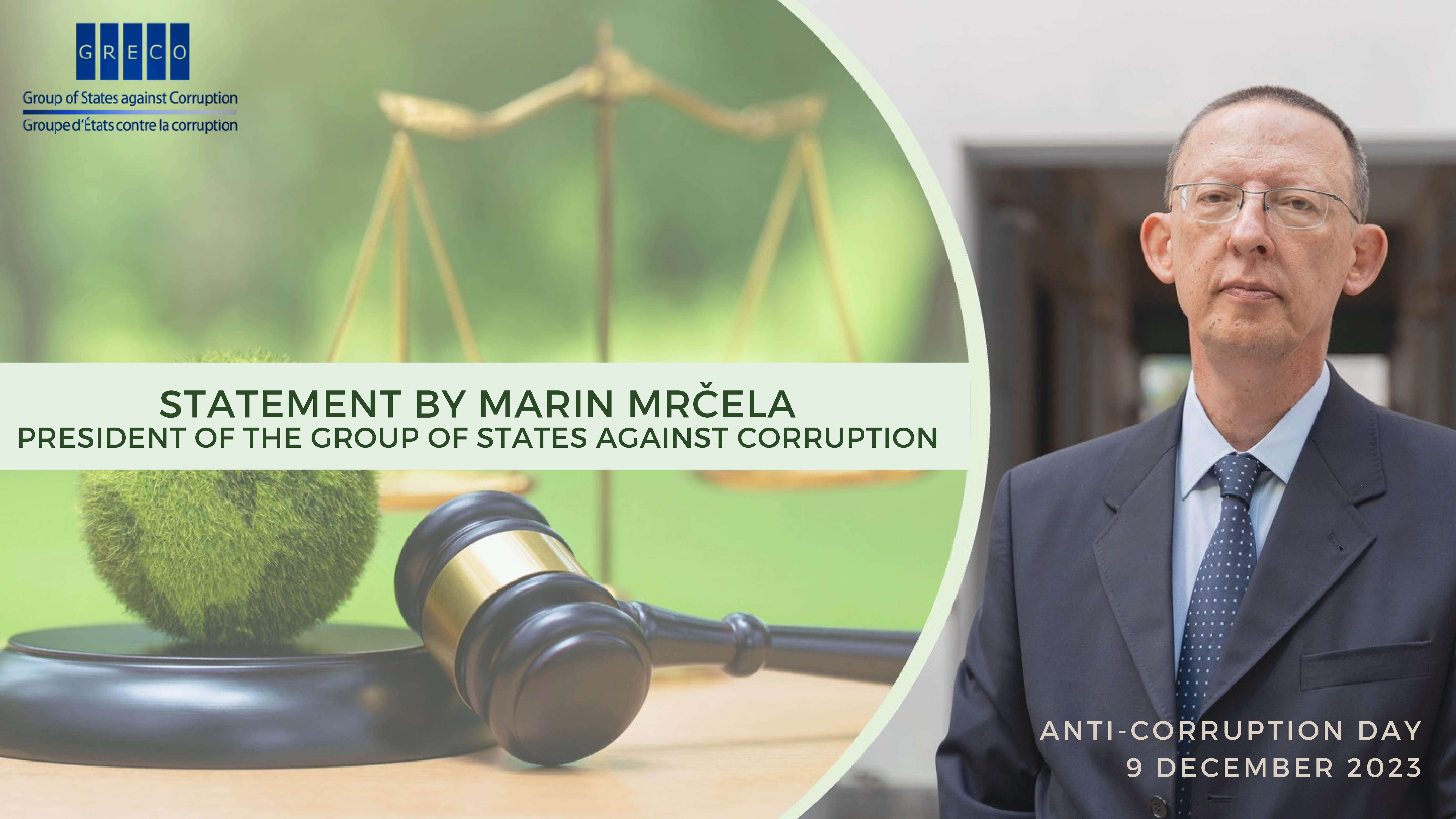Ahead of the International Anti-Corruption Day, held every year on 9 December, the President of the Group of States against Corruption of the Council of Europe (GRECO), Marin Mrčela, has issued the following statement:
“Environmental crimes, driven usually by the enormous illegal financial benefits that offenders can obtain, often depend on corrupt practices, including bribery and undue influence targeting high-ranking public officials, politicians and law enforcement. Private sector corruption in this area is also a concern.
“The crimes in question relate to illegal forestry, illegal fishery, illegal wildlife trade, illegal mining, illegal dumping and illegal transport of hazardous waste, among other illicit activities. They cause irreparable damage to natural resources, citizens’ right to a healthy environment and the rights of future generations.
“Corruption enables the perpetration of environmental crimes. States should enhance the transparency of their decision- and law-making processes in areas such as the use of environmental resources, processes for issuing permits and concessions, certifications and enforcement, and environmental inspections. Pollution rights and their trade must be strictly regulated, and authorities should be alert to possible abuses concerning such rights. Corruption prevention measures are also essential as part of the green transition in which large amounts of money are being invested.
“GRECO’s recommendations to its member states are fully applicable to environment-related corruption, including the adequate regulation of lobbying, public procurement and permit procedures and their effective implementation, as well as the protection of whistleblowers. The transparency of the legislative process – including respect for public consultation and participation requirements and respect of the right to public information – is also essential to prevent abuse.
“The convention on the protection of the environment through criminal law currently being prepared by the Council of Europe should allow states to sharpen their tools to prosecute offenders, counter impunity for these crimes, and better protect environmental resources.
“States should take determined action to make the fight against environmental corruption a policy priority. Corrupt practices in the environmental sector ultimately result in the degradation of the world’s natural resources, a legacy that our younger and future generations should not inherit.”







